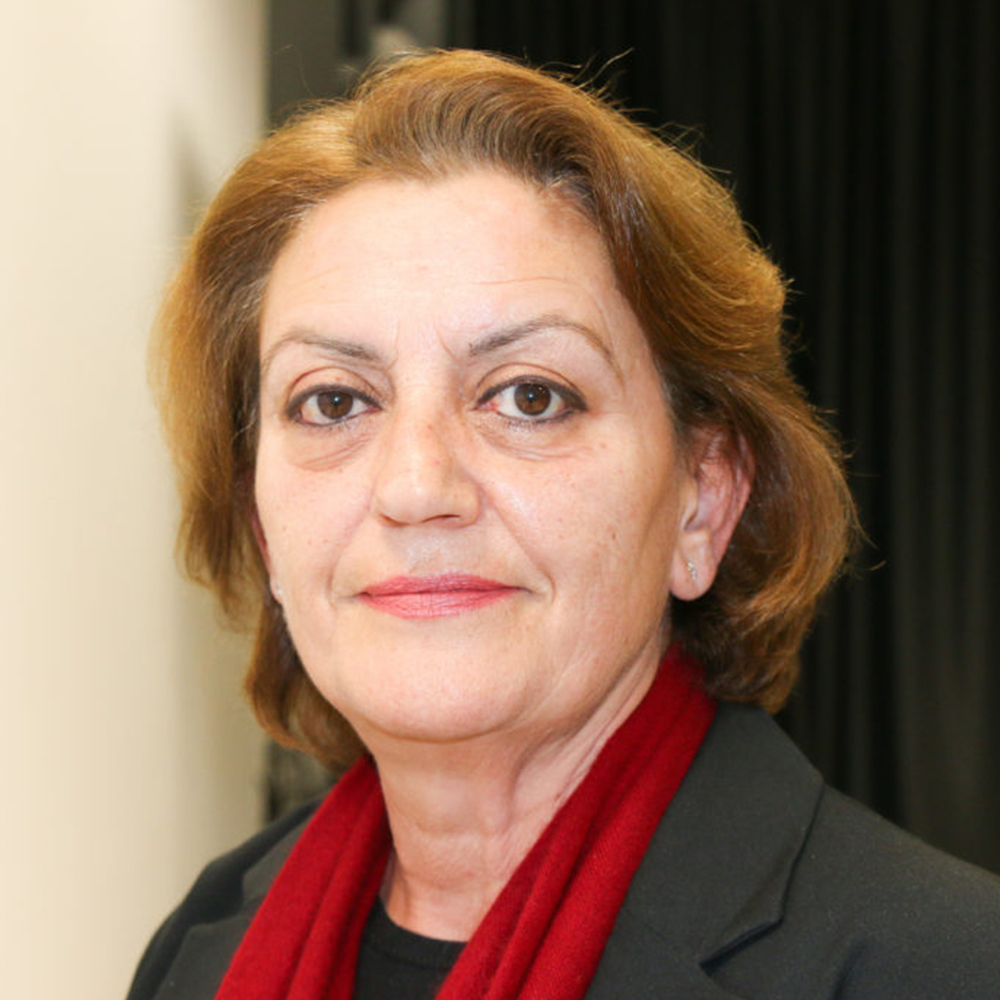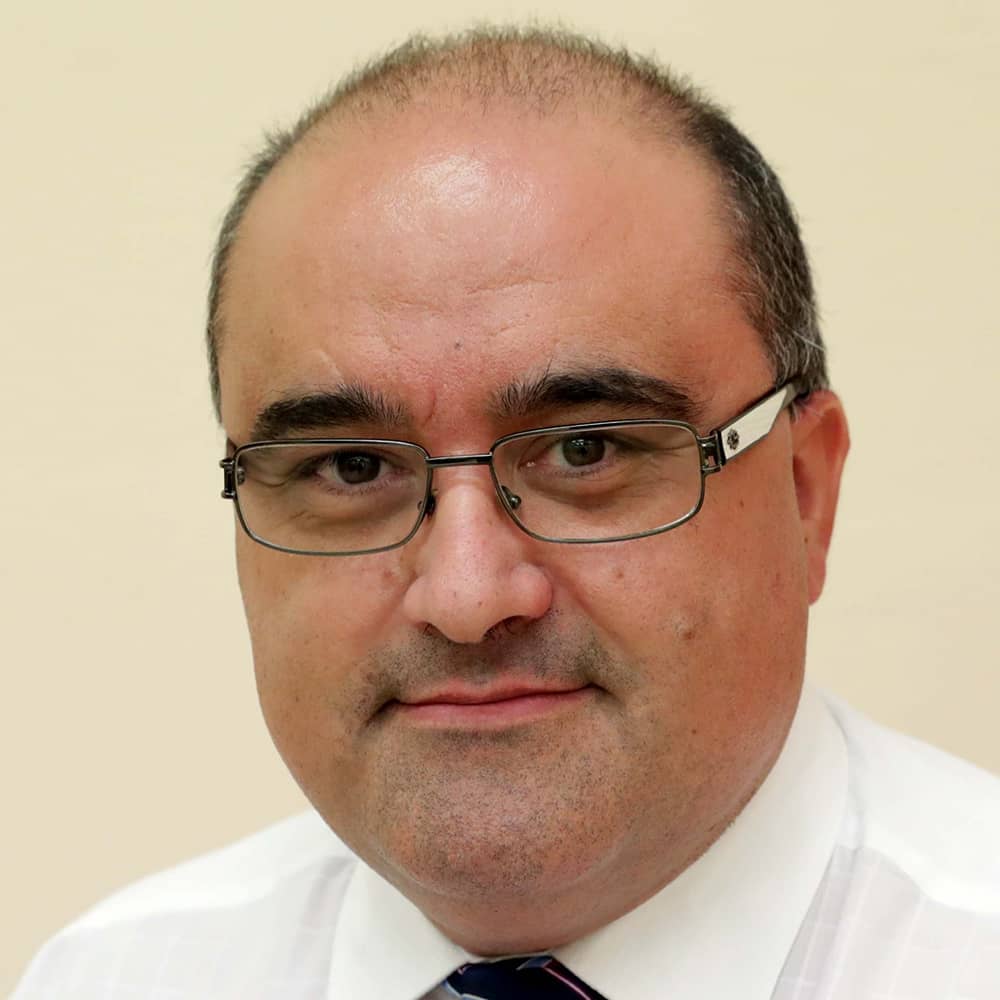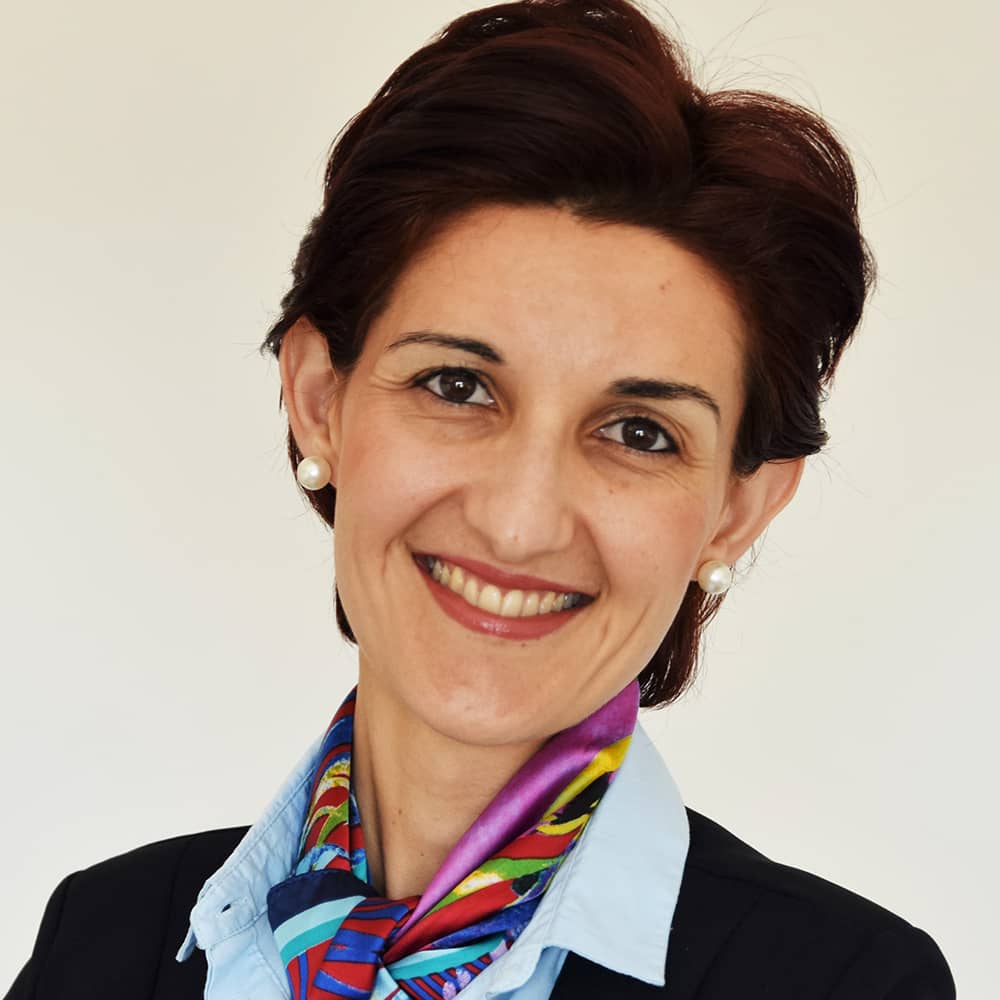Course Description
The Higher Diploma in Healthcare(120 ECTSs) aims to enrol carers who are interested in continuing their education and embark on the course with the aim of leading them to a career in nursing studies. Thus the aim of this course is to serve as a permeability channel between vocational MQF level 4 education and education to an academic MQF Level 6 degree in nursing. The knowledge, both theoretical and practical will enhance their competencies and introduce them to the nursing role carried out through observation and assistance in practice.
This course does not certify a health care worker as a qualified nurse. The qualification at the end of this course will be a Higher Diploma in Healthcare.
Should the student wish to leave from the course, individual awards for each and every module with the respective ECTS will be awarded.
Learning Outcomes
By the end of the course programme, students will be able to:
- Understand the wide context of the medical and surgical care, along with the integration of mental health, infection control, emotional intelligence, nutrition and primary health care and most importantly the psycho-social aspect of delivering care.
- Define hollistic care approach with regards to the physical, mental and psychological aspects of every individual and giving importance to patient empowerment and patient centred care.
- Develop an Understanding of the multitude of research methods and the importance of evidence based practice and publications of literature with its relevance to the health care world.
- Identify problem solving skills needed to, be able to work with a multi-disciplinary team, engage in the health care work force and be able to use their judgement based on sound ethical and legal foundations.
- Identify the variety of possible resources offered in the local Maltese health care settings, thereby understanding the importance of referral to other health care facilities and appropraite relevant services.
- Understand and define the nursing role and assist in any of the allocated and delegated tasks appropriately.
- Understand and describe how to deliver care in other different specialities apart from the medical and surgical fields, such as paediatric settings, anti-natal areas, cancer and palliative care including end of life care.
Target Candidates
Health carers in possession of the following qualifications:
- MQF Level 4 award (minimum of 24 ECTS) in healthcare or a related area or equivalent with at least one year of proven experience (full time) in healthcare or portfolio of evidence or
- MQF Level 3 award (minimum of 12 ECTS) in healthcare or equivalent with at least 3 years of proven experience (full time)in healthcare or portfolio of evidence.
| Contact Hours | Placement Hours | Self Study Hours | Assessment Hours | Total Learning Hours |
|---|---|---|---|---|
| 600 | 480 | 1578 | 342 | 3000 |
| Course Code | Duration | Credit Value | Next Intake | FT/PT |
|---|---|---|---|---|
| LW/HSC/008 | 24 months | 120 ECTS | To be announced | FT/PT |
Mode of Training
This is a blended programme where 40% of the lectures will be delivered online and 60% face-to-face. The programme includes 480 hours of work placements in a clinical setting.
Other activities to support the learning hours include lectures, group work, practical sessions and clinical practice sessions.
Assessment
Assessment of each module consists of two assignments, each carrying a weighting as below:
Assignment: 80%
Participation in class/online: 20%
A pass from all assessments is expected.
Exit Awards
- Each module is an exit award worth 6 ECTS at MQF Level 5 except module 2 which has a credit value of 12 ECTS.
- Upon the successful completion of one compulsory module at 12 ECTS and 3 compulsory modules at 6 ECTS the learner will be entitled to the Certificate in Healthcare (MQF 5, 30 ECTS);
- Upon the successful completion of one compulsory module at 12 ECTS and 8 compulsory modules at 6 ECTS the learner will be entitled to the Diploma in Healthcare (MQF 5, 60 ECTS);
- Upon the successful completion of all the required modules together with the compulsory work placements Healthcare the learner will be entitled to the Higher Diploma in Healthcare (MQF 5, 120 ECTS);
Awarding Body
Learning Works
Course Structure
Module 1(LW/HSC/009): Fundamental Principles of Care (6 ECTS)
This module will be targeted as a preparatory course to ensure that all students grasp the basic concepts in a standard manner. Such basic concepts would include:
- The Role of the Carer
- Responsibility and Accountability
- Working in a team for a common purpose and goals
- the very basic practical clinical skills such as hand hygiene, bed making, bed bathing, meal distribution, feeding a patient, nappy changing, essential skin care, dressing a patient, patient elimination needs, mobilization, patient transfer, and basic errands related to ward based needs.
- Basic communication with patients, relatives, and health care professionals
- Documentation
- Carer-patient relationship
- Safety in the workplace
- Personal qualities and presentation to work such as uniform care
- Overview of Holistic Care
- Overview of Patient Empowerment
- Overview of Reflective Practice
- Critical Thinking
- Learning through a mentor’s guidance
Module 2 (LW/HSC/010): Medical and Surgical Care (12 ECTS)
This module will integrate an in-depth understanding of the various practical and theoretical skills required to care for patients within the advancing Medical and Surgical entities inside a healthcare setting. Health care professionals need to remain aligned with such dynamic changes and be able to modify the care accordingly whilst combining ethical and legal foundations.
Learners need to complete placements of 80 hours each in separate medical and surgical settings .
Module 3 (LW/HSC/011): Introduction to Elderly Care (6 ECTS)
This module will focus on caring for older persons. It will provide the students with a necessary guide to enhance community care for the elderly and promote independent living as much as possible. The preservation of the quality of life of the elderly person is the primary focus.
Learners must complete a compulsory 80-hour work placement as part of this module
Work placement in an elderly setting is compulsory for the award of completion of this course, therefore clinical placement is a requirement in any one of the local Maltese settings providing elderly care.
Module 4 (LW/HSC/012): Introduction to Health Informatics (6 ECTS)
Health informatics aims at developing methods and technologies for the acquisition, processing, and study of patient data coming from different sources and modalities, such as electronic health records, diagnostic test results, medical scans. Health informatics enables us to document, share information, communicate with a variety of multi-disciplinary health care professionals, facilitate continuity of care, monitoring overall health care status and helps in the overall ethical standards of care. This module will incorporate the importance of the principles and various concepts of health informatics and how to achieve safety and security within ethical guidelines when utilising such modalities.
Module 5 (LW/HSC/013): Introduction to Ethical Issues in Healthcare (6 ECTS)
This module introduces the very important aspect of decision-making in order to be able to take decisions in the best interest of our patients. This module challenges the students to explore controversial subjects such as euthanasia, abortion and so on and determine means of tackling such issues utilizing ethically sound decision making skills. The Maltese legal and cultural context will be referred to throughout this module.
Module 6 (LW/HSC/014: Introduction to Mental Health (6 ECTS)
Mental health is important at every stage of life, from childhood and adolescence through adulthood and aging. It is as fundamental as physical health and every health care professional must understand the care needed to help patients preserve optimum mental health. This module introduces the various mental health disorders and the necessary care for every condition. This module focuses on the Maltese legislations related to the sector.
An obligatory 80-hour work placement in a mental healthcare setting is compulsory for successful completion of this module.
Module 7 (LW/HSC/015): Community Care (6 ECTS)
One of the aims in healthcare is to promote the concept of patients remaining in the community and receiving the necessary care whilst retaining independence and a normal lifestyle as much as possible. Hence this module will focus on extending students’ knowledge to care for individuals and their relatives whilst in the community.
A work placement is pegged to the successful completion of this module in the community.
An obligatory 80-hour work placement in a Community Care setting is compulsory for successful completion of this module.
Module 8 (LW/HSC/016): Nutritional Health (6 ECTS)
Good nutrition is the basis of child development, brain function, improved immunity, as well as the reduction in non-communicable diseases. Proper nutrition would lead to a significant risk reduction of cardiovascular disease, renal disease, cancer, hypertension, and diabetes. Hence healthcare workers are encouraged to have the knowledge of how to provide proper nutrition, avoid malnutrition and take the appropriate actions to educate others.
Module 9 (LW/HSC/017): Maternity Care (6 ECTS)
Undoubtedly expecting mothers require both physical and psychological care. There are several stages when it comes to pregnancy which range from antenatal, intrapartum, and post-natal care. New born care requires various other skills and knowledge such as developmental factors, activities of daily living amongst other skills. This module will cover all three stages.
An 80-hour work placement in a Mother and Child care setting is compulsory for successful completion of this module.
Module 10 (LW/HSC/018): Infection Control (6 ECTS)
Infection control is an essential part of health care at all levels. It addresses factors related to the spread of infections within the healthcare setting, including prevention, monitoring/investigation of demonstrated or suspected spread of infection within a particular healthcare setting, and management.
This module introduces students to the routine infection prevention and control skills which are applicable in any health care setting.
Module 11 (LW/HSC/019): Mentorship Skills for Healthcare Workers (6 ECTS)
This module will enable healthcare workers to establish a mentoring role and be able to supervise their junior colleagues and be able to enrich their teaching skills. A mentor is considered as a vital role in the learning experience of a student since mentors can act as role models, encourage others to learn, and guide those who are in the beginner’s phase. Moreover, it will benefit both the mentor and mentee to share experiences and enrich their work experience with critical thinking and reflective practice.
Module 12 (LW/HSC/020): Emotional Intelligence for Healthcare Workers (6 ECTS)
Communication is key when it comes to patient care. Therefore, it is critical to learn how to communicate successfully and how to be able to provide person-centred care. On the other hand, it is also critical to be able to contain our emotions and be able to interact with others in an effective manner. This module also focuses on the concept of teamwork, compassion and empathy along with other interpersonal skills.
Module 13 (LW/HSC/021): Paediatric Care (6 ECTS)
Hospitalized children require a different type of care than what adults are provided with. This module is aimed at providing the health care worker the necessary knowledge, skills and competences to be able to deal with common paediatric conditions, treatments, and the necessary care accordingly. Ethical and legal issues related to the care of children particularly in the Maltese context will will also be explored.
Module 14 (LW/HSC/022): Biomedical and Pharmacological Studies (6 ECTS)
In this module learners will have the opportunity to get an understanding of various diseases and disorders. The focus is on the physical changes and the diseases and disorders they inflict on the human body. Through pharmacology the learner will be able to relate the prescribed medications to the diseases and disorders accordingly. Rather than just focusing on the disease alone, the student will be able to integrate the remedy along with benefits and negative impacts of such medication. The most common conditions such as communicable and non-communicable diseases and hereditary diseases will be discussed.
Module 15 (LW/HSC/023): Public Health and Quality Care (6 ECTS)
This module aims to introduce the importance of maintaining, improving and promoting public health and how this can be achieved. There are various roles in the Public Health Department, with the aim of offering health services whilst promoting fairness and equality irrelevant of race, gender, age and culture. The concept of patient empowerment is given prominence to establish the culture of taking decisions with regards to health responsibly. Public health also ensures that each and every individual has access to health services and that people remain in the community as much as possible. Moreover, the concept of environmental health is also considered imperative to maintain optimum health in the community.
Module 16 (LW/HSC/024): Supporting Individuals with Special Needs (6 ECTS)
This module provides the learner with the necessary knowledge on how to care for a persons with various disabilities ranging from developmental and physical disabilities. It is important that all care concepts are integrated such as a holistic approach, empowering patients and being their advocates when the need arises.
Module 17 (LW/HSC/025): Introduction to Management and Leadership in Healthcare (6 ECTS)
This module will enable students to critically identify and analyse important aspects of management within a healthcare setting. Such aspects include various managing and leadership styles along with various principles which guide the individual to take decisions when in a managerial position. This module also enables the student to understand the importance of having a leader and the respect every manager requires in order to be able to manage a work place. In this module reference will be made to various theories along with strategies to establish healthy work relationships, healthy change behaviour and teamwork to reach a common goal.
Module 18 (LW/HSC/026): Introduction to Research Studies in Healthcare (6 ECTS)
Research in healthcare has enabled health care professionals to base their opinion when taking medical decisions. It is of utmost importance that an individual working in the health care setting is fully capable of searching for academic papers, able to read them and understand the research language and understand the importance of the results. Therefore, such research would be able to help that individual to make evidence-based decisions and ultimately even perform own independent high quality research. This module provides the basics for locating and reviewing relevant literature and be able to understand the theoretical underpinnings and determine the quality of such findings.
Module 19 (LW/HSC/027): Spirituality in Healthcare (6 ECTS)
As part of a holistic approach in health care, the physical, psychological and spiritual aspects are considered when caring for patients. Therefore this module will provide an introduction to the imperative concept of spirituality and how to link this concept to practice.
Entry Requirements
Learners need to satisfy the following criteria:
- Ages 18 +
- MQF Level 4 award (minimum of 24 ECTS) in healthcare or a related area or equivalent with at least one year of proven experience (full time) in healthcare or portfolio of evidence or
- MQF Level 3 award (minimum of 12 ECTS) in healthcare or equivalent with at least 3 years of proven experience (full time)in healthcare or portfolio of evidence
- Be able to communicate in the English Language. Students whose first language is not English will be required to demonstrate English language capability at IELTS level 6.0 or equivalent.
- Have a minimum level of proficiency in Maltese. For this reason applicants should be in possession of at least a MQF Level 1 award in Maltese as a foreign language.
- Hold a clean Police Conduct Certificate.
- Since a considerable component of this course (40%) will be delivered on line candidates are expected to be able to make use of Zoom as a platform as well as Moodle – the institution’s VLE. Part of the induction for this course will include a session on the use of these digital platforms.
- Students are expected to be able to present their written work in a digital format, mainly using a word document and/or a power point. This will also be included in the induction session.
Candidates may be applying for recognition for prior learning (RPL) for up to 50% of the total ECTSs for this programme
Learning Works










